Best guitar tuners 2026: From tuning pedals and clip-ons, to guitar tuning apps
Keep your all-important tuning on point with the best strobe, polyphonic and chromatic tuners
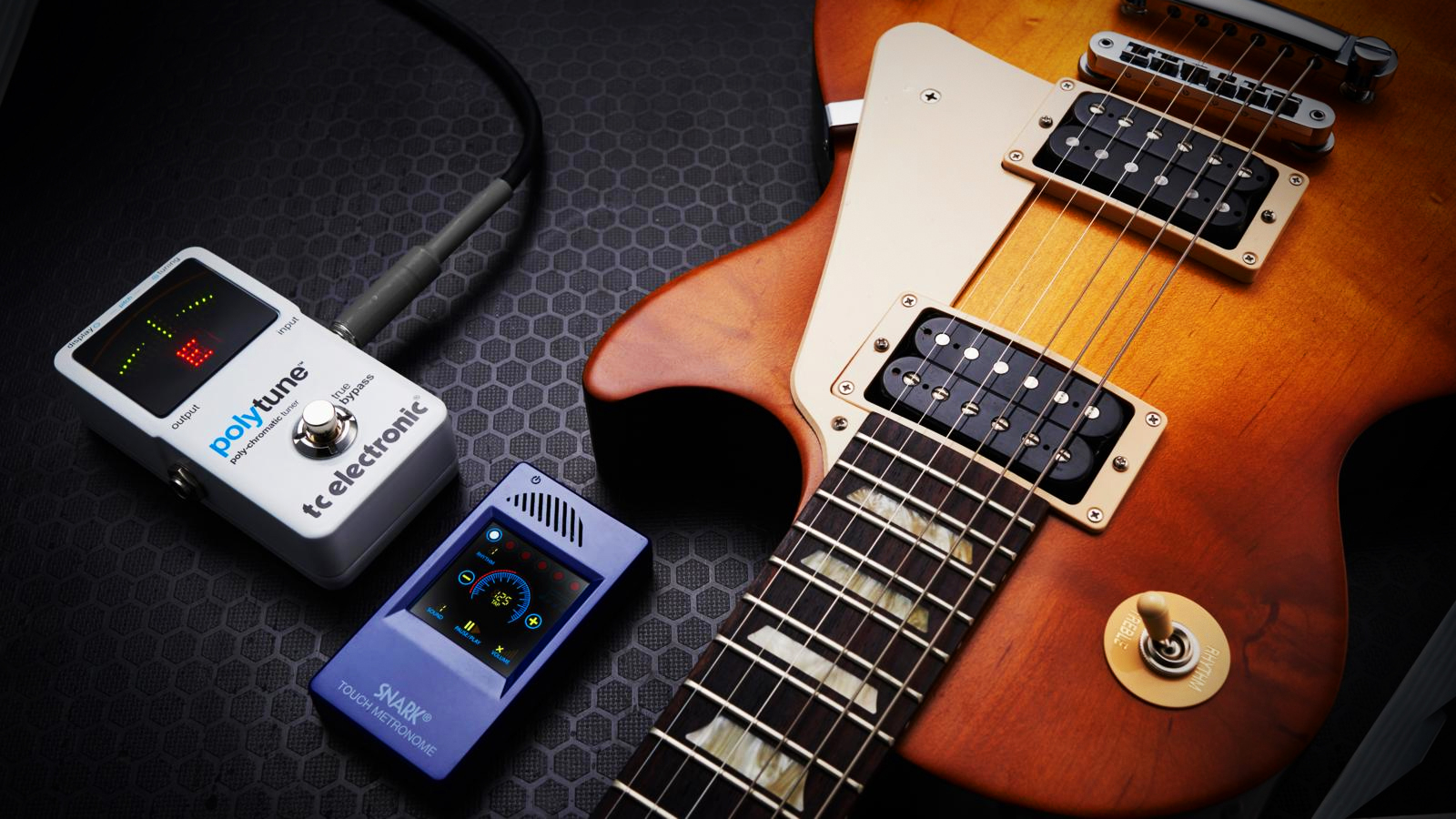
Want all the hottest music and gear news, reviews, deals, features and more, direct to your inbox? Sign up here.
You are now subscribed
Your newsletter sign-up was successful
Reader, take note: buying yourself one of the best guitar tuners could be the smartest way of spending your cash. It’s not necessarily the most exciting purchase, but a good-quality, reliable guitar tuner could make the difference between a good gig or a recording session and a bad one.
A guitar tuner makes sure that all of your strings (whether you play electric, acoustic, bass or ukulele) are in tune with each other, so that when you play a chord, the intervals within it are ringing out as they should, resulting in something that hopefully sounds good! The best guitar tuners become even more crucial when playing with other musicians - there’s nothing worse than you all playing the same thing and one of you is slightly out of tune. A band being incredibly in tune with one another can also help them sound tighter.
Many players can tune by ear, but a good tuner is usually more accurate, plus it means you’re not having to shush the audience to hear yourself when playing live.
You really don’t have to spend a lot, either - there are even free guitar tuner options included in this guide. We’ve put together our list of the best guitar tuners, plus some useful buying advice to ensure that no one has to endure an out-of-tune Stairway to Heaven again.
Best guitar tuners: Quick list
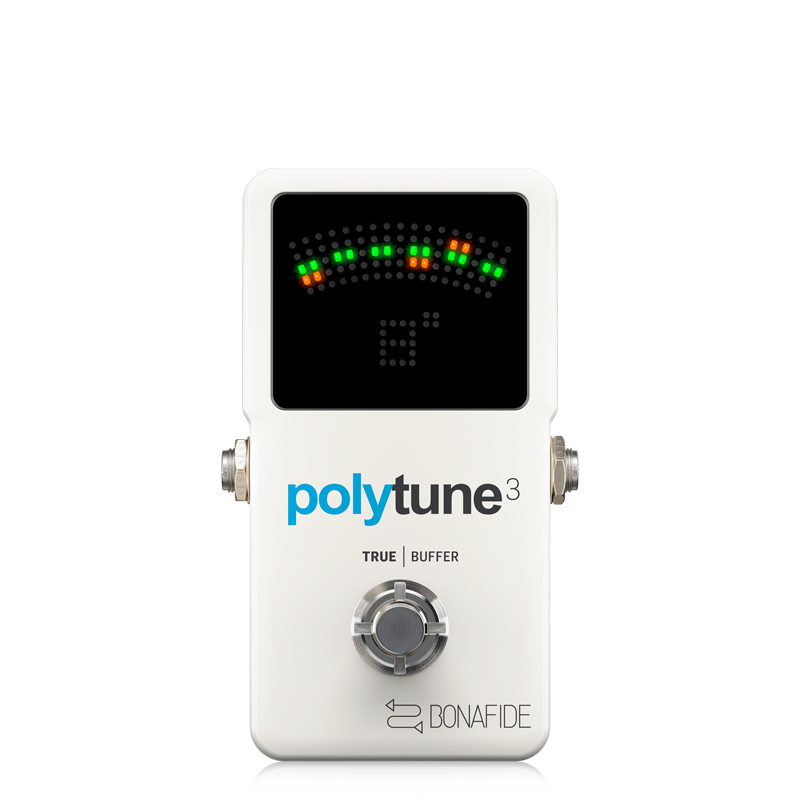
TC Electronic is the first name in polyphonic tuning (which allows you to tune all strings at once), and its latest incarnation is, in our opinion, its best pedal tuner yet. The third entry in the PolyTune line boasts a built-in BonaFide Buffer, which offers players the choice between all-analogue buffered bypass and true bypass, adjusted via internal DIP switches.
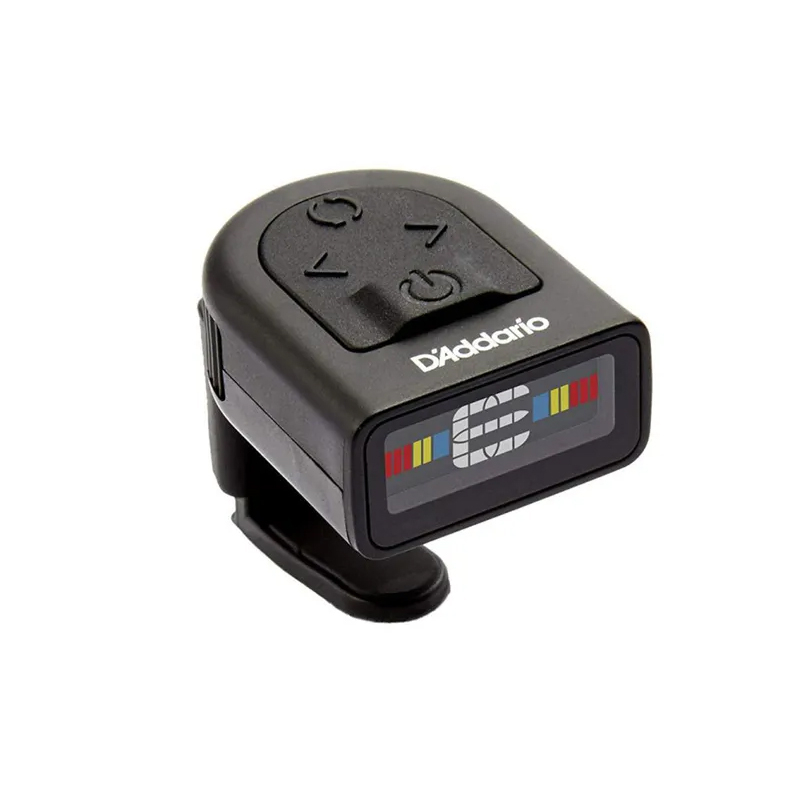
Headstock tuners don’t get much smaller than this, but the NS Micro Tuner doesn’t sacrifice functionality thanks to an easily adjustable screen, multiple calibration modes and even a visual metronome. We found it easy to attach to the front or back of our guitar’s headstock, too, and was invisible to all but the most eagle-eyed of audience members.
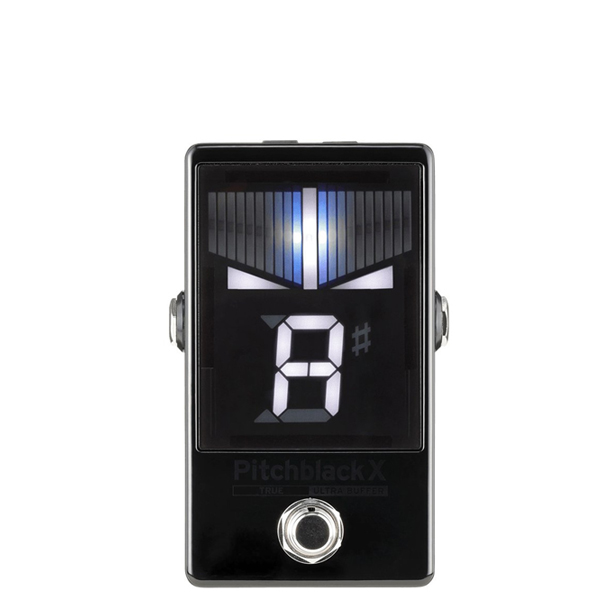
It’s accurate and works well on guitar and bass, and you’ve got the option of operating it in either True Bypass or Ultra Buffer mode. So, if you’re running long cables, you can ensure your top end remains intact. You’ve also got a power output that can run up to 200mA of other pedals
Best guitar tuner overall
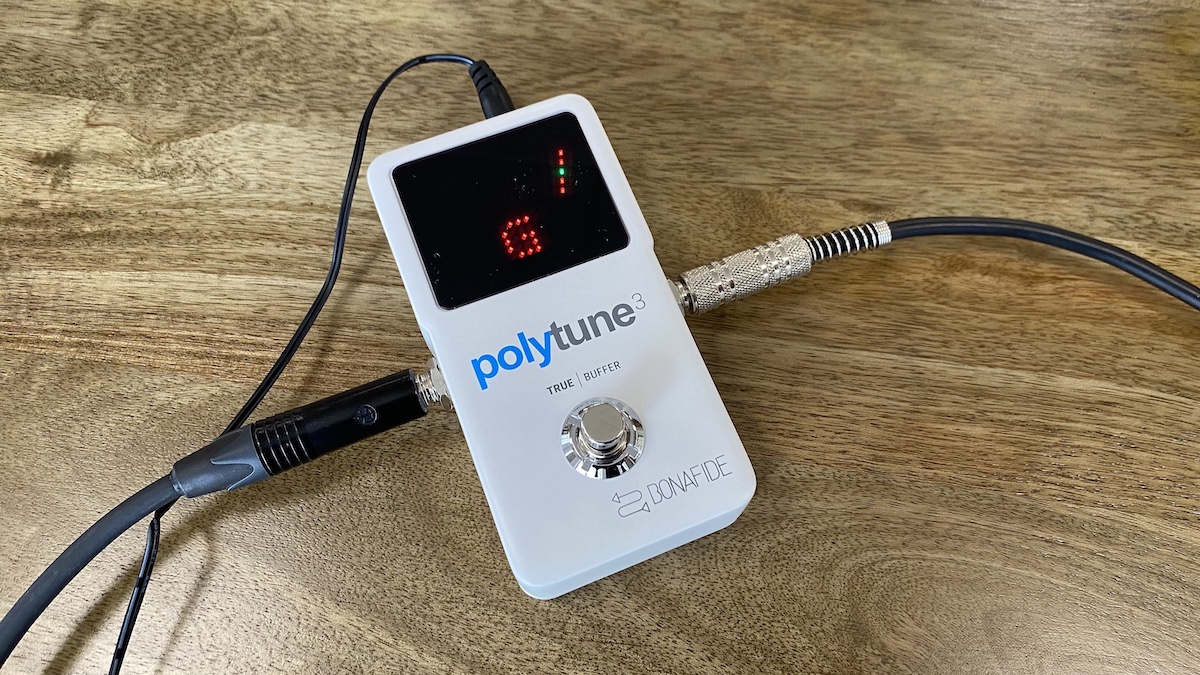
Specifications
Reasons to buy
Reasons to avoid
✅ Buy if you want the best pedal tuner on the market: When it comes to pedal tuners, the TC Electronic PolyTune 3 is our favourite. This tuner is accurate, simple to use and affordable.
❌ Avoid if you want a clip-on tuner: As this is a pedal tuner, it won't work for purely acoustic instruments.
TC Electronic is the first name in polyphonic tuning (which allows you to tune all strings at once), and its latest incarnation is, in our opinion, its best pedal tuner yet. The third entry in the PolyTune line boasts a built-in BonaFide Buffer, which offers players the choice between all-analogue buffered bypass and true bypass, adjusted via internal DIP switches.
Buffered bypass is useful for boosting a signal along long cable runs or large pedalboards. Elsewhere, the pedal packs the same features as the PolyTune 2, including an ultra-bright LED display, polyphonic and chromatic tuning modes and a +/- 0.02-cent accurate strobe tuner. Hit the link below to see how we found it in action.

"The TC Electronic PolyTune 3 is their best guitar tuner yet, and for the money there are few tuners on the market with the same set of features. With an ultra-bright LED display, impressive accuracy and more useful features on board, this tuner deserves some serious consideration if there’s a gap on your pedalboard."
Read the full TC Electronic Polytune 3 review
Best headstock tuner
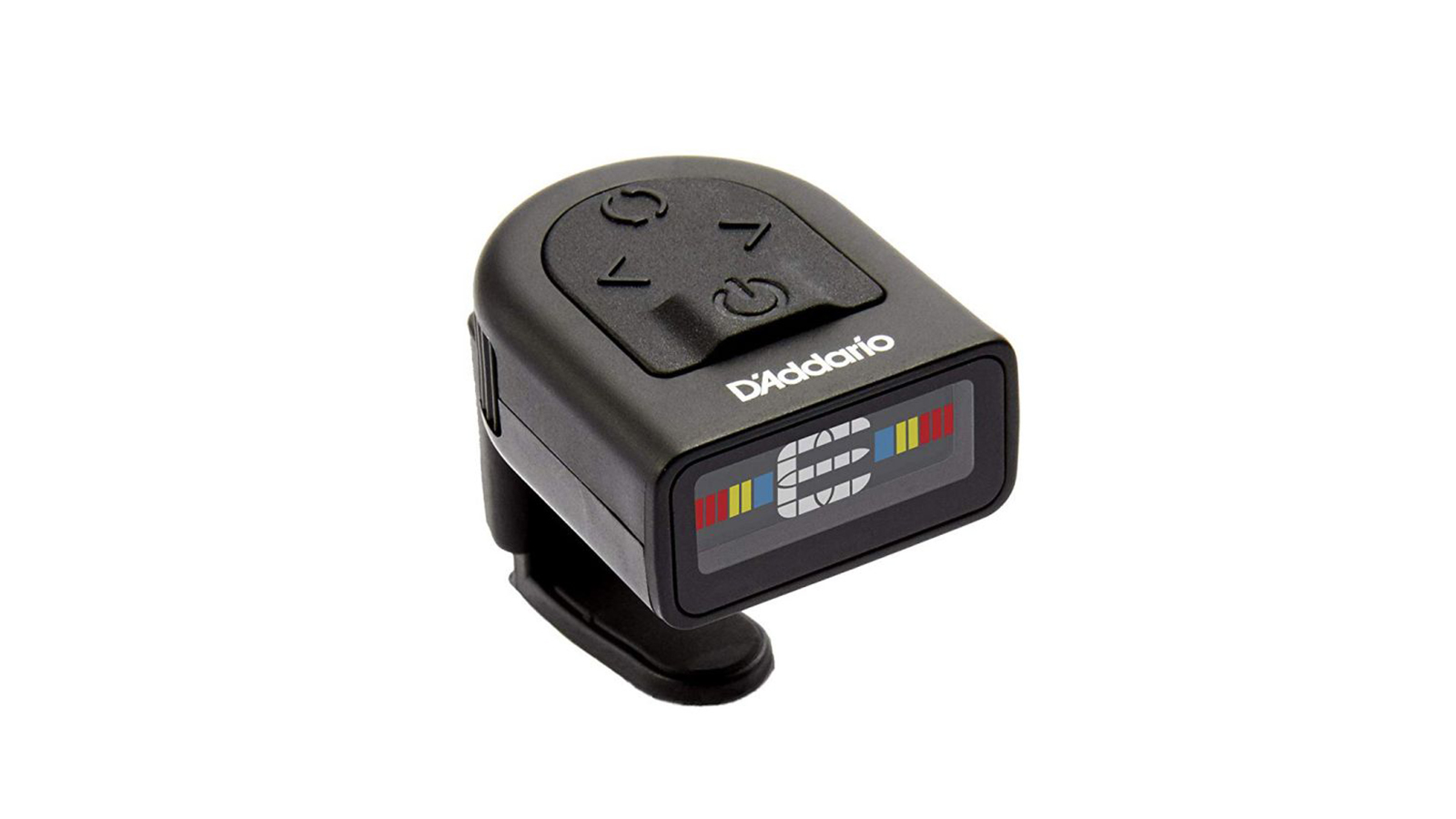
Specifications
Reasons to buy
Reasons to avoid
✅ Buy if you want a discrete clip-on option: This is one of the smallest clip-on tuners on the market, meaning it's barely noticeable on the end of your headstock.
❌ Avoid if you need a polyphonic mode: Unfortunately, this tiny D'Addario tuner doesn't feature a polyphonic mode.
Headstock tuners don’t get much smaller than this, but the NS Micro Tuner doesn’t sacrifice functionality thanks to an easily adjustable screen, multiple calibration modes and even a visual metronome. We found it easy to attach to the front or back of our guitar’s headstock, too, and was invisible to all but the most eagle-eyed of audience members.
There's no problems fitting it to just about any instrument with a headstock, whether that's electric guitar, acoustic, classical, bass, banjo, mandolin, ukulele or upright bass. Its discrete appearance, low price and quick tuning response make it the best headstock guitar tuner around.

"The D’Addario NS Micro Tuner is a fantastic choice for those who want a small yet powerful headstock tuner. With a bright, easy to read screen, easily adjustable angle and even a visual metronome on board, this feature-filled clip-on tuner is perfect for almost everybody. It’s inexpensive, small, and pretty damn accurate"
Read the full D'Addario NS Micro Tuner review
Best battery life
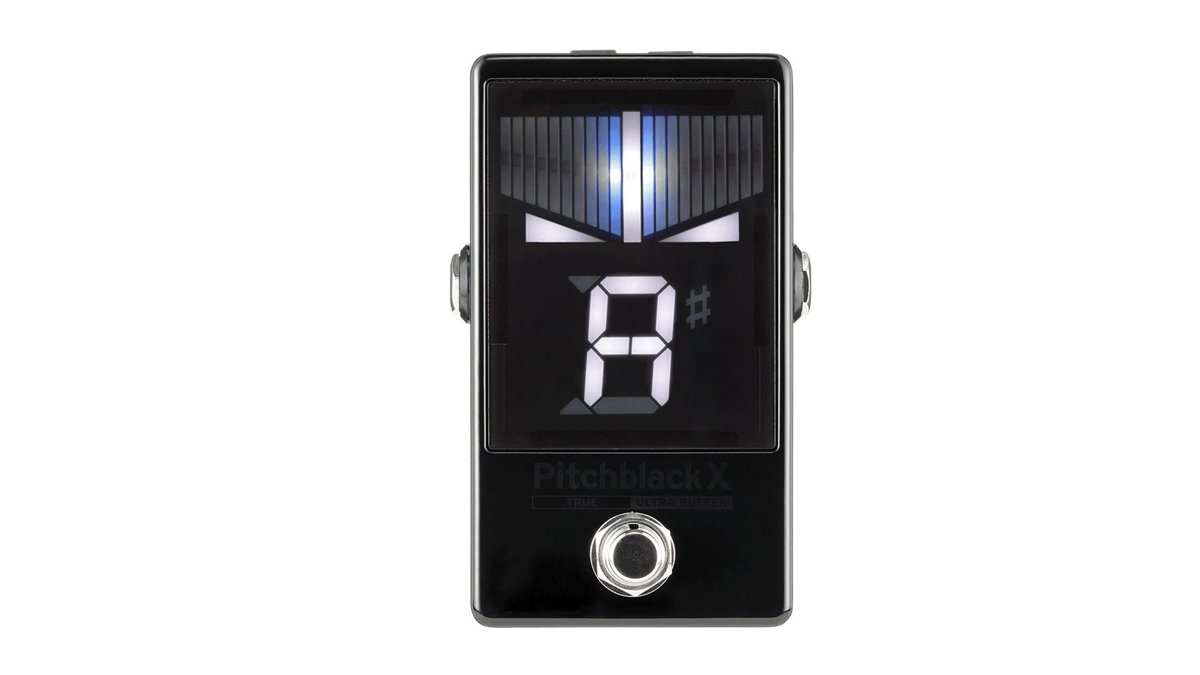
3. Korg Pitchblack X
Our expert review:
Specifications
Reasons to buy
Reasons to avoid
✅ Buy if you want excellent battery life: With a whopping 60-hour battery life, this pedal is ideal for long gigs and jam sessions.
❌ Avoid if you need a compact option: While this pedal isn't the largest pedal tuner on the market, it is still somewhat bulky compared to others.
Here’s a quality pedal tuner that offers multiple different display options, +/- 0.1 cent accuracy, buffered and true bypass and a nice, bright display that’s easy to read in any scenario.
It’s really easy to use, and you can choose whether you have it in strobe, half strobe, mirror, or the more traditional regular display mode. This means that you can have the tuner work in whichever way you find the easiest. The display is easy to read, with nice big letters showing up, plus you’ve got the option of making it even brighter if perhaps you’re playing outside on a sunny day.
It’s accurate and works well on guitar and bass, and you’ve got the option of operating it in either True Bypass or Ultra Buffer mode. So, if you’re running long cables, you can ensure your top end remains intact. You’ve also got a power output that can run up to 200mA of other pedals.
Best strobe tuner
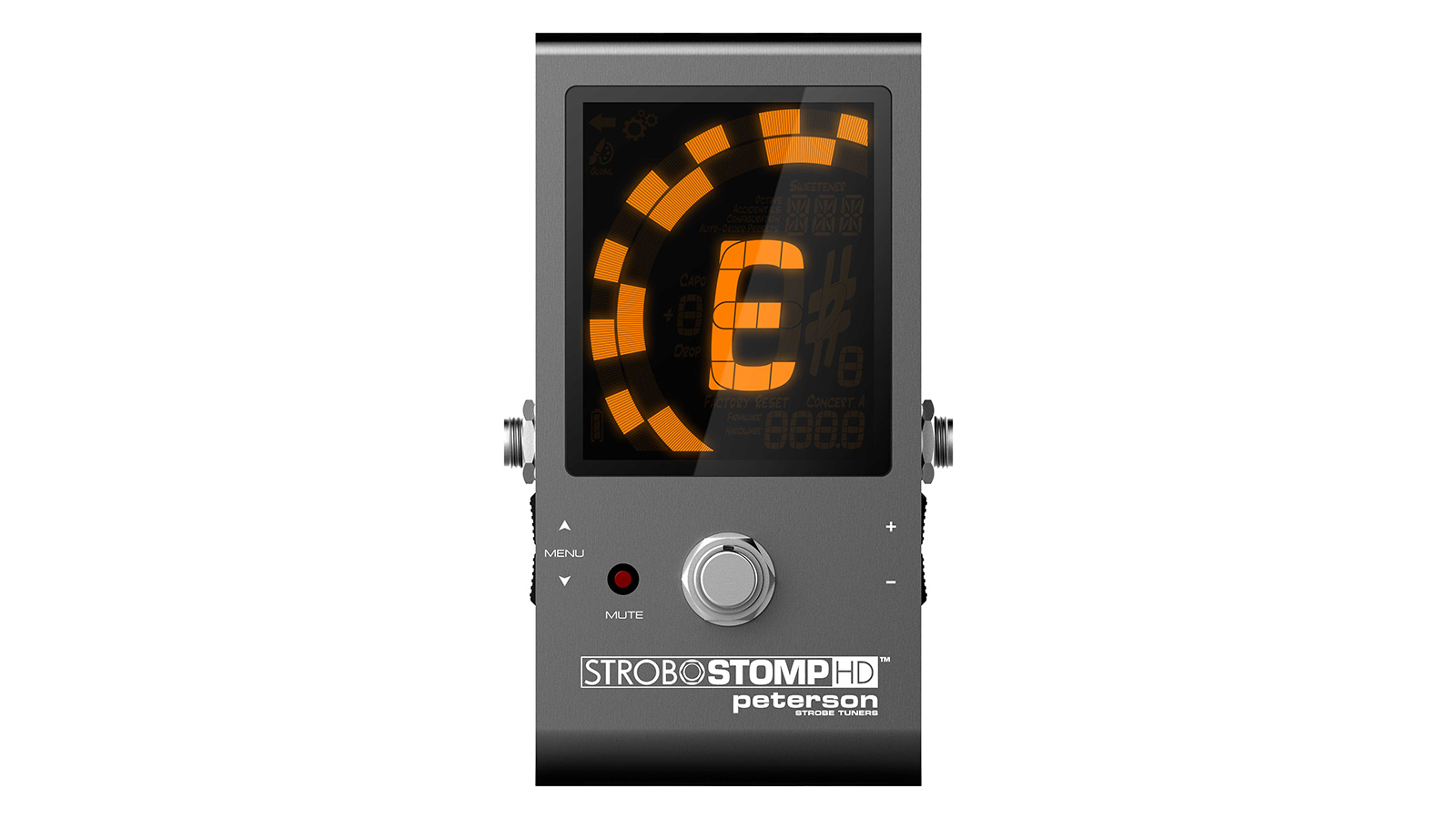
4. Peterson StroboStomp HD tuner
Our expert review:
Specifications
Reasons to buy
Reasons to avoid
✅ Buy if you want a strobe tuner: If you are on the hunt for a brilliant strobe tuner, then this is the unit for you.
❌ Avoid if you don't like strobes: If you aren't going to use the strobe function, then there are better options out there.
Famed for their accuracy, Peterson strobe tuners have long been the choice of pros seeking the highest quality gear, and 2019 saw the company unveil what it considers to be ‘the ultimate pedal guitar tuner’ – the StroboStomp HD.
Boasting a feature set far beyond most of its rivals, you’ll find both true and buffered bypass modes, plus 135 ‘sweetened’ tunings – micro-adjusted reference pitch points optimised for a variety of instrument types and altered tunings. You can even save your own presets.
Of course, this level of nerd-ish tweakery can only be employed by the most precise tuners – and the StroboStomp HD delivers 0.1 percent accuracy. Enough for the most discerning of ears.
Best for reliability
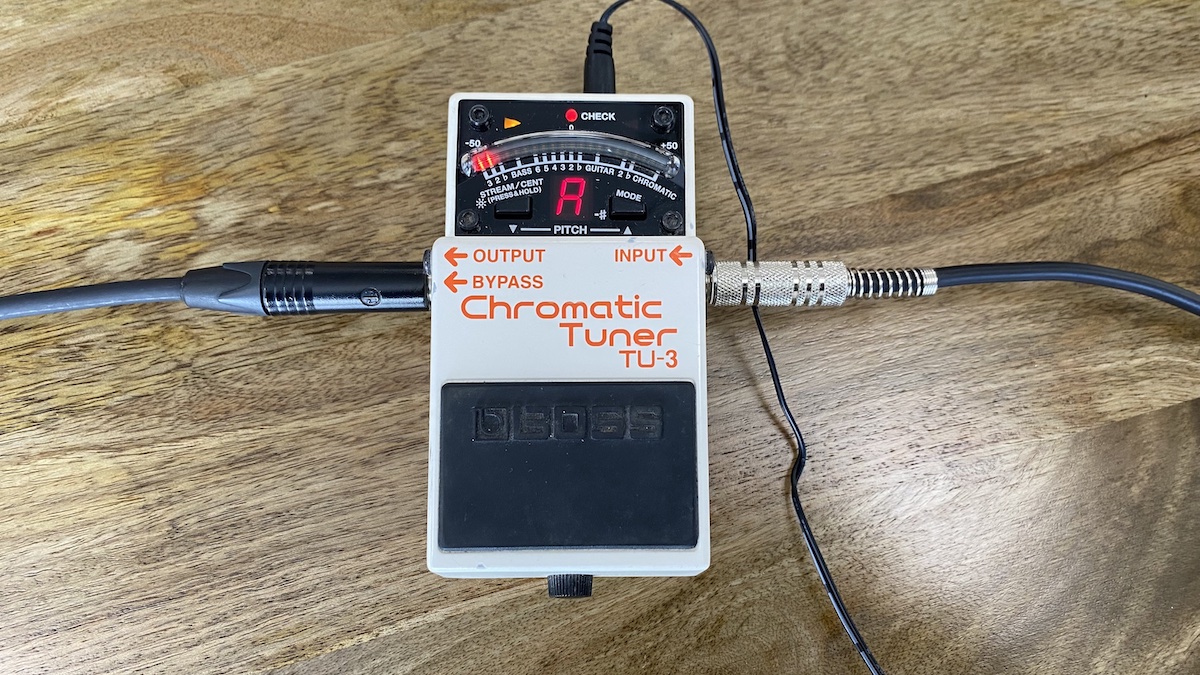
Specifications
Reasons to buy
Reasons to avoid
✅ Buy if you want a bullet-proof option: Boss is well known for their impeccable build quality, and the TU-3 is no different.
❌ Avoid if you don't need a pedal tuner: Again, like the other pedal tuner options on this list, the TU-3 won't work with purely acoustic options.
Boss created an industry standard with the TU-2 pedal tuner in 1998, and its successor offers a number of improvements on the classic format. The TU-3 is quoted at +/-1 cent over a 23-segment LED display, which means it tunes more accurately, something we can attest to. Other functions include drop tuning up to six semitones and bass tuning up to three flats.
A new high brightness mode means that maximum current draw is up from 55mA (TU-2) to 85mA. Using the recommended Boss supply and a PCS-20A daisy chain, the TU-3 will also pass power to a total of 200mA to up to seven other pedals. Boss is resisting true bypass switching, which may be an issue for the tone-obsessed, but the usual Boss buffered output helps when using long leads and numerous pedals.

"Simple: a classic, updated. Success awaits you, TU-3."
Read the full Boss TU-3 Chromatic Tuner review
Best on a budget
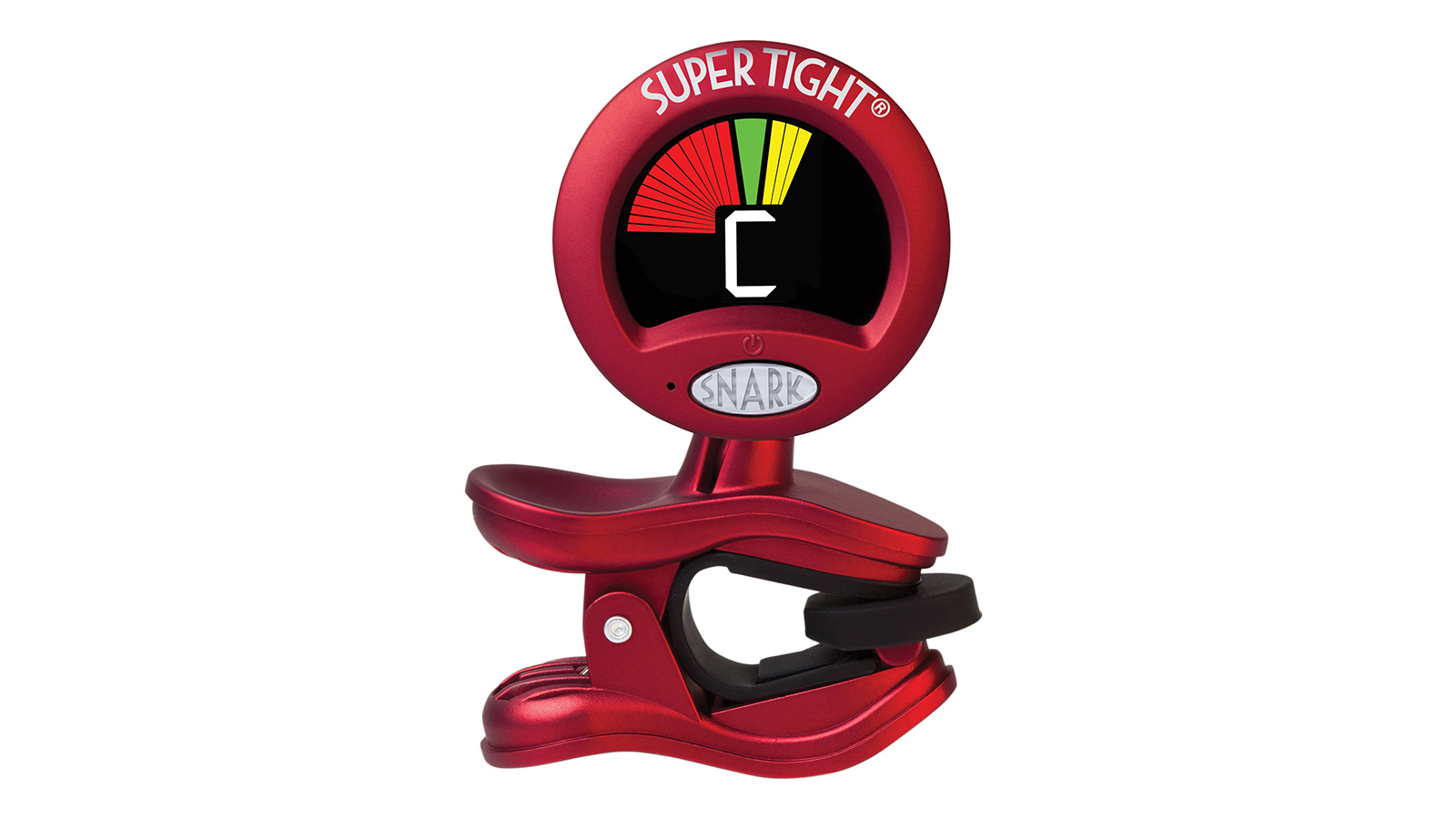
6. Snark ST-2 Super Tight tuner
Our expert review:
Specifications
Reasons to buy
Reasons to avoid
✅ Buy if you want an affordable clip-on: When it comes to affordable clip-ons, the Snark gets our vote. It's sturdy, reliable and very easy to use.
❌ Avoid if you want a subtle design: We'll be the first to admit that the Snark isn't exactly the best-looking tuner on this list.
Though there are several pricier and fully featured tuners here, Snark’s ST-2 is aimed at the player who wants just the bare essentials. So, what might those essentials be?
First of all, the ST-2 tracks quickly. Set it to the vibration sensor and it’ll work just fine in all but the loudest of gigs. The microphone is for acoustic instruments of course, so you’ll need some peace and quiet.
Second, the attachment system is robust and the screen is easily angled – a surprisingly important feature because clip-ons have to fit in around tuning machines on six-string guitars, 12-strings, mandolins, basses… you get the idea!
At this price it’s worth having an ST-2 around even if you only keep it in a gig bag.
Best guitar tuner app

7. Fender Tune guitar tuner app
Our expert review:
Specifications
Reasons to buy
Reasons to avoid
✅ Buy if you want a free tuner: If you need a simple free option, then the Fender Tune app is the ideal solution.
❌ Avoid if you need to tune in a noisy environment: As this tuner works with the microphone on your phone, it isn't the best option for loud environments.
Available for both iOS and Android, Fender's first ever app aims to deliver an intuitive, easy-to-use interface that makes it easy for newcomers to get their instrument in tune, while also covering basic tone tips, including strumming and setting up amps.
The app detects notes from acoustic guitars and amplified electrics, and offers auto tune, chromatic and manual tune modes, including alternate tuning options and the ability to create custom tunings. Additional in-app purchases add a more visually precise Pro Tuner, metronome and drum beats, plus scale diagrams and chord finder.
Best soundhole tuner
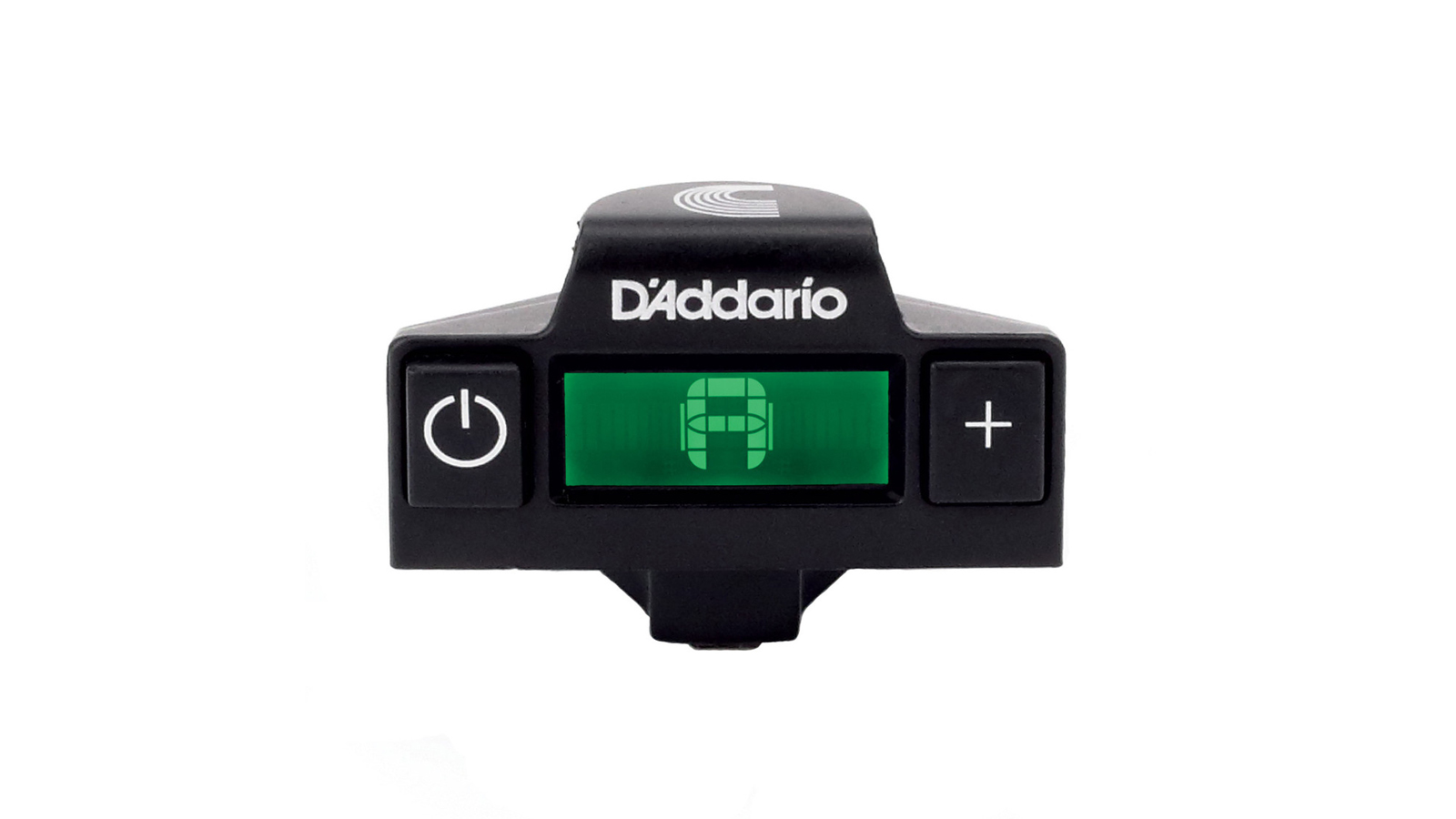
8. D'Addario NS Micro Soundhole Tuner
Our expert review:
Specifications
Reasons to buy
Reasons to avoid
✅ Buy if you want a subtle option for acoustic guitars: This is our top choice for acoustic guitars, as once it's installed, it doesn't need to be removed.
❌ Avoid if you have an electric guitar: This tuner is specifically designed for acoustic guitars.
It's not the first acoustic soundhole tuner we've seen, but D'Addario's Micro Soundhole Tuner is certainly the smallest and least intrusive. Mounted via a non-marking universal mounting clip, the tiny chromatic tuner is concealed within your guitar's soundhole.
A highly sensitive piezo transducer detects vibrations from the soundboard, promising fast and accurate tuning response, while the bright display makes for easy viewing. The NS Micro Soundhole Tuner is designed for acoustic guitars, basses and ukuleles, and offers an A435-455 calibration range.
Best poly clip-on
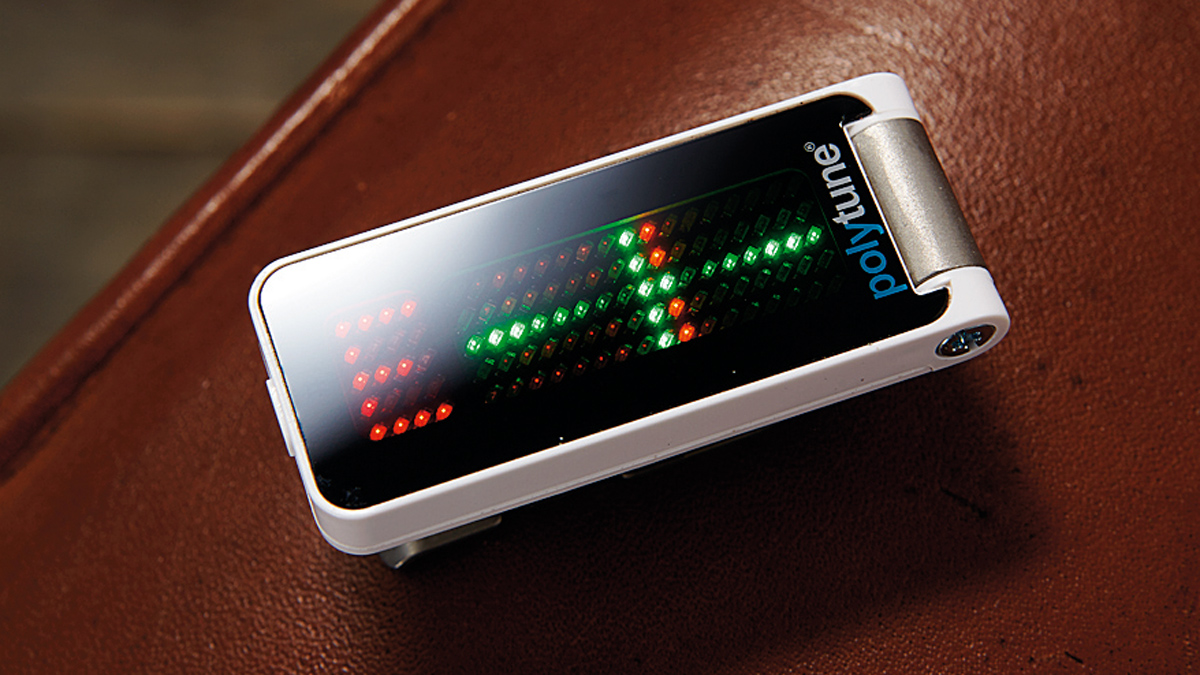
Specifications
Reasons to buy
Reasons to avoid
✅ Buy if you want polyphonic tuning in a clip-on format: If you require a poly tuner that can attached to the head of your guitar, this is the best option for sure.
❌ Avoid if you don't need a polyphonic setting: If you are purely seeking a standard tuner, then there are more affordable options out there.
It’s been a pretty popular choice since its introduction in 2015, but boasting a staggering tuning accuracy of +/- 0.02 cents in strobe mode and 0.5 cents in chromatic mode, the TC Electronic PolyTune Clip is still very much worth its salt in our opinion.
Not so surprisingly, it’s a polyphonic tuner at heart, but with both chromatic and strobe modes on hand, it’s suitable for people of all tuning persuasions. The PolyTune Clip is even suitable for our low-end merchants, with the one-note ‘needle’ mode.
Unfortunately we did experience the odd negative point. Polyphonic mode is prone to being a little buggy at times, especially in environments that aren't totally silent, and its' accuracy is a little way off. It’s also quite big for a clip-on, which might put some people off - but if you’re after something bold, bright and very visible, then this is the one for you.

"Far from the cheapest headstock tuner, but aside from that polyphonic display, it's extremely accurate and rather cool!"
Read the full TC Electronic Polytune Clip review
Best budget pedal
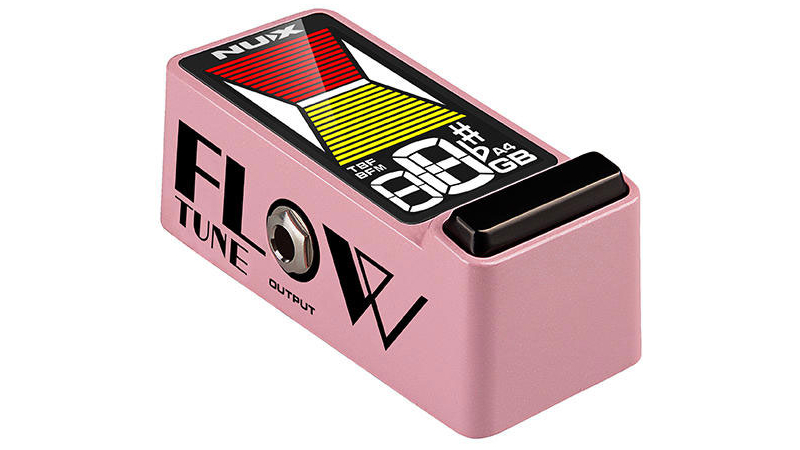
10. NUX NTU-3 Flow Tune
Our expert review:
Specifications
Reasons to buy
Reasons to avoid
✅ Buy if you want a cheap pedal tuner: This NUX tuner may be cheap, but it certainly doesn't feel like it.
❌ Avoid if you want very precise tuning: This tuner is accurate enough for most situations, but for studio work, we'd opt for one of the bigger names.
Recently, we've found ourselves increasingly impressed with the budget offerings from NUX, and the NTU-3 is no exception. NUX has managed to pack a lot of valuable features into a relatively small package, all while keeping the cost down - it's a win, win!
The Flow Tune offers users a trio of display options, including strobe and two "Arrow" modes. Better yet, the colourful screen is incredibly vivid and large enough to see at any distance, perfect for large stages or outdoor gigs.
What's more, the NTU-3 offers players the ability to switch between true bypass and buffered bypass modes!
Glossary
- Auto Mode: Your tuner’s lazy mode (in a good way). It automatically detects which string you’re playing without you having to tell it. Perfect when you’re just starting out and don’t want to faff about with settings.
- Calibration: Adjusting your tuner to match a specific pitch reference, usually A440 (440Hz). Most tuners let you tweak this if you’re playing with a piano that’s tuned slightly differently, or if you’re into historical tunings.
- Cent: A tiny unit of pitch measurement—there are 100 cents in a semitone. When your tuner shows +5 or -3, that’s how many cents sharp or flat you are. The closer to 0, the better.
- Chromatic Tuner: The all-rounder of tuners. It recognises all 12 notes in the musical scale, so you can tune to any note you want. Great for alternate tunings or if you play multiple instruments.
- Clip-On Tuner: A little tuner that clips onto your guitar’s headstock and picks up vibrations directly from the wood. Super handy for noisy environments where a microphone-based tuner would struggle.
- Drop Tuning: When you tune one or more strings lower than standard. Drop D (where your low E string drops to D) is the most common. Your tuner will help you nail these without guessing.
- Flat: When your string is tuned below the target pitch. Your tuner will usually show this with a minus sign or by lighting up on the left side. Turn your tuning peg to tighten the string.
- Frequency: How fast a string vibrates, measured in Hertz (Hz). Standard tuning puts your A string at 440Hz. Your tuner reads these frequencies to tell you if you’re in tune.
- Hertz (Hz): The unit for measuring frequency—one Hertz equals one vibration per second. A440 means the A note vibrates 440 times per second. You’ll see this when calibrating your tuner.
- Intonation: How well your guitar stays in tune up and down the neck. Even if your open strings are perfectly tuned, poor intonation means fretted notes will sound off. A tuner helps you check this.
- LED Display: The little screen or lights on your tuner that show you what note you’re playing and whether you’re sharp or flat. Easier to read than squinting at a needle.
- Microphone Tuner: A tuner that uses a built-in mic to “hear” your guitar. Works fine in quiet rooms, but can get confused if there’s background noise or other instruments playing.
- Needle: The visual indicator that swings left (flat) or right (sharp) on many tuners. You want it dead centre. Some tuners use lights instead, but the concept’s the same.
- Pitch: How high or low a note sounds. When you’re tuning, you’re adjusting each string to match a specific pitch. Standard tuning is E-A-D-G-B-E from thickest to thinnest string.
- Reference Pitch: A known pitch you tune to, like A440. Some tuners can play reference pitches out loud so you can tune by ear, which is great for training your hearing.
- Sharp: When your string is tuned above the target pitch. Your tuner shows this with a plus sign or by lighting up on the right side. Loosen your tuning peg slightly to bring it down.
- Standard Tuning: E-A-D-G-B-E, from your thickest string to your thinnest. This is what most songs are written in, and what your tuner defaults to when you first switch it on.
- Strobe Tuner: The fancy, super-accurate type of tuner that uses rotating patterns to show tuning accuracy. Overkill for most beginners, but beloved by professionals and gear nerds.
- Transducer: The bit inside a clip-on tuner that picks up vibrations from your guitar. It’s basically a tiny sensor that feels the wood vibrating and converts that into a signal the tuner can read.
How to choose
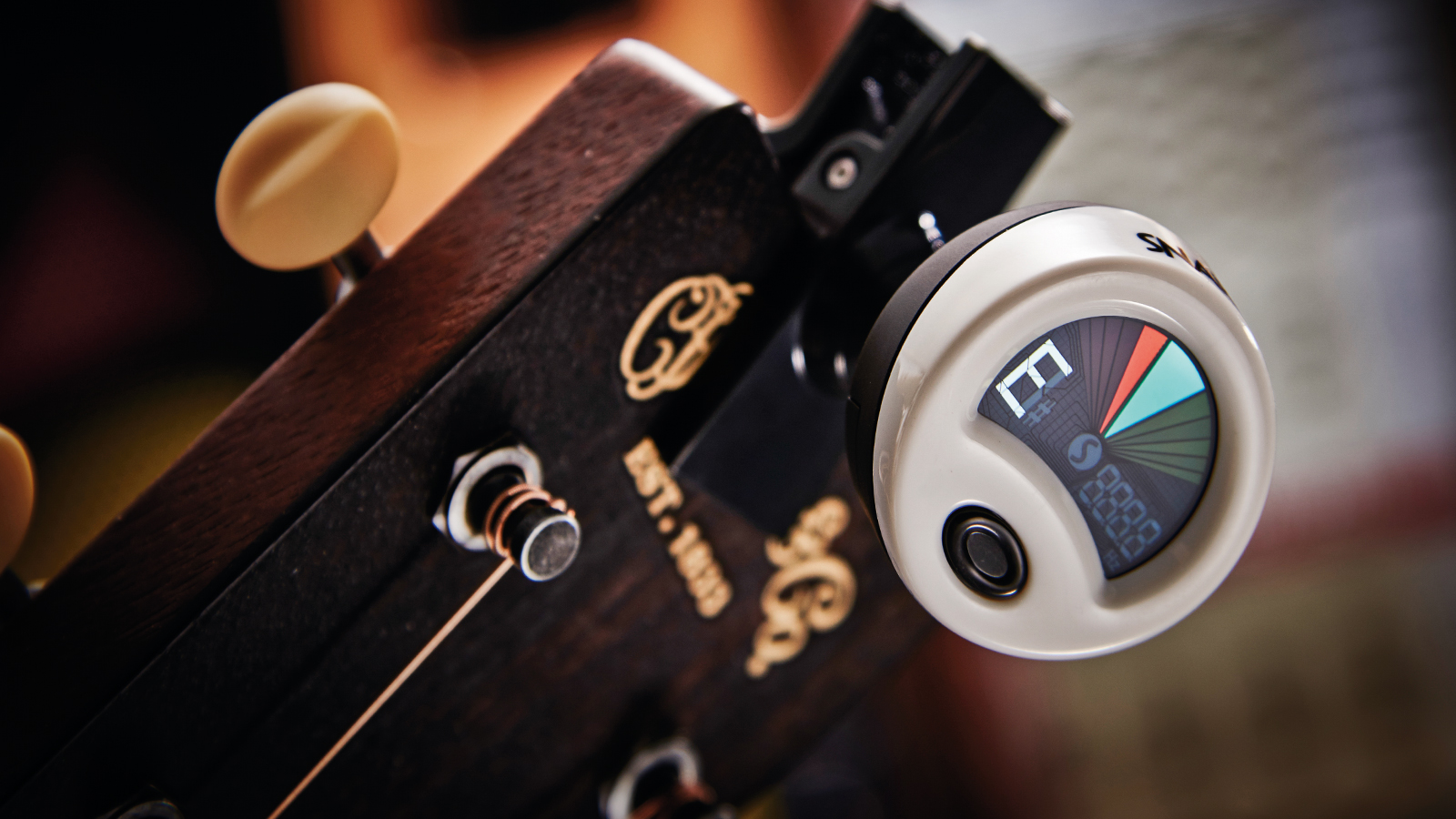
Finding the best guitar tuner doesn’t have to be complicated. Here’s what to consider when you’re shopping around.
Type matters: Clip-on tuners are brilliant for beginners, they’re affordable, portable, and work in noisy environments by picking up vibrations from your headstock. Pedal tuners are great if you’re gigging and need something sturdy on your pedalboard. App-based tuners work in a pinch, but aren’t always the most accurate.
Go chromatic: A chromatic tuner recognises all 12 notes, which means you’re covered for standard tuning, drop tunings, and even other instruments. It’s way more versatile than a guitar-specific tuner.
Check the display: You want something easy to read, especially on a dimly lit stage or in bright sunlight. LED displays with clear needle indicators or colour-coded lights make life easier.
Accuracy counts: Look for tuners with accuracy within ±1 cent. Most modern tuners hit this mark, but it’s worth checking reviews.
Extra features: Some tuners include a metronome, pitch calibration (handy if you’re playing with a piano), or a built-in mic. Nice to have, but not essential.
FAQS
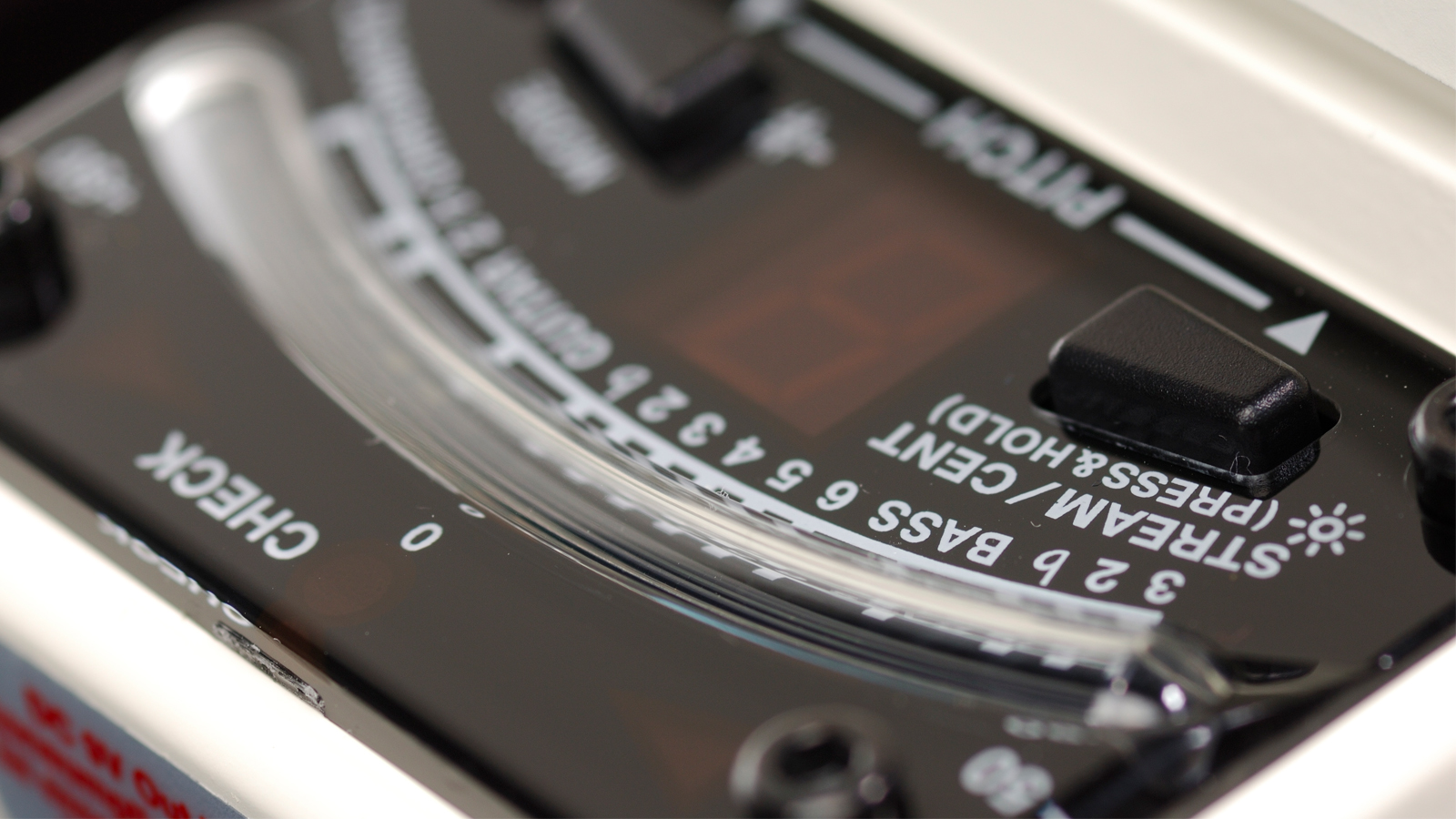
What are the different types of guitar tuners?
Buying yourself the best guitar tuner is, thankfully, not as complex as buying a new overdrive pedal, chorus pedal or reverb pedal. The tuner market comes with what we’d call a 'good limitation' – meaning there aren't hundreds of different variations to choose from.
When it comes to guitar tuners, there are three main types that you'll come across. Get to grips with what they are and how they work, and you’ll find it much easier to choose the best guitar tuner for you:
Chromatic tuners - The most common type of tuner - this is likely the place you’ll start. ‘Chromatic’ just means that the tuner only identifies one of the 12 notes of the chromatic scale in Western music. Very useful indeed, but you’ll be playing one note at a time to tune. Luckily, chromatic tuners tend to be the cheapest - so there’s more money left over for beer.
Strobe tuners - These tend to be the most accurate tuners of all – usually reflected in a higher price. They're certainly not necessary for beginners, but pro players and guitar techs swear by them.
Polyphonic tuners - A more recent design, allowing you to play all six strings together, with a display showing how in or out of tune all six are at once. Clever, huh? Those displays can take a bit of getting used to but once you do you’ll find tuning on the fly much easier.
Should I use a pedal tuner, headstock tuner or app?
Tuners often fall into one of a small number of categories – pedal or headstock. That being said, tuning via mobile devices has improved immensely in recent years and can be hard to beat in terms of convenience for those who do most of their playing at home.
Headstock tuners are often desired for their simplicity as much as their scaled down designs - making them perfect for a beginner or someone who has never used a tuner before. They clip on to the headstock of the guitar and interpret intonation through vibration. These tuners were once cheap and cheerful, and never held their own outside of the practice room, but nowadays they can boast some seriously useful tech making them a great option if you don’t use pedals.
Pedal tuners are definitely the most popular choice. With a pedal tuner, you're looking for durability and accuracy. Your tuner will likely find a home among your other pedals and is the pinnacle of set-and-forget, but knowing that it won’t fall apart or give an inaccurate readout is crucial. Place it in the chain in the desired location – usually at the start – and it'll sit there quietly doing its job whenever called upon.
The new kid on the tuning block involves using an app on the phone or iPad you're possibly reading this article on now. While perfect for bedroom practice sessions, this type of tuner is not the one to use if you're out gigging. Getting your phone out mid-set to tune up your guitar isn't the most professional-looking move in the world, and it won't be as accurate as a pedal or clip-on alternative.
Is true bypass important for a guitar tuner?
If you choose to go down the pedal route, you'll be faced with this question - does it matter if the pedal is true bypass or buffered?
Whether you want a tuner that’s true bypass or buffered is up to you. True bypass allows your signal to flow through the pedal without any colouration. While this might sound ideal, it isn’t for everyone, especially if you’re running a big pedalboard or long cables. The longer your signal route, the more you’ll start to lose the top end of your frequency range.
As the name suggests, a buffered pedal contains a buffer. Basically, the buffer ensures your signal stays at an optimal level, meaning it won't degrade as it travels through meters of guitar cable. Now, some players don't like the sound difference that occurs when a buffer is introduced into the chain. Still, for many, it's a necessary addition. There is no right or wrong answer here - choose the best option for your needs.
It's worth noting that some of the best tuner pedals even allow you to switch between buffered and true bypass.
How we selected the best guitar tuners
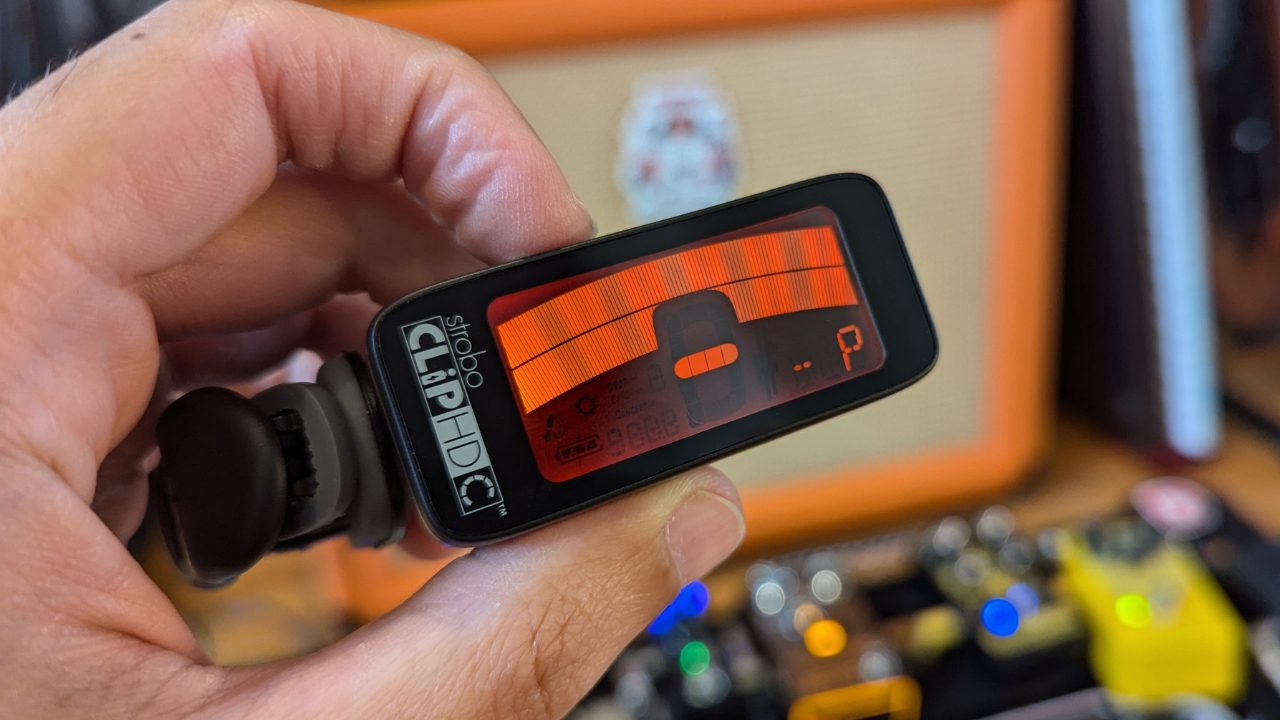
Here at MusicRadar, we are experts in our field, with many years of playing, creating and product testing between us. We live and breathe everything music gear related, and we draw on this knowledge and experience of using products in live, recording and rehearsal scenarios when selecting the products for our guides.
When choosing what we believe to be the best guitar tuners available right now, we combine our hands-on experience, user reviews and testimonies and engage in lengthy discussions with our editorial colleagues to reach a consensus about the top products in any given category.
First and foremost, we are musicians, and we want other players to find the right product for them. So we take into careful consideration everything from budget to feature set, ease of use and durability to come up with a list of what we can safely say are the best guitar tuners on the market right now.
Find out more about how we test music gear and services at MusicRadar.
Related buyer's guides
MusicRadar's got your back
- Take the lead with our guide to the best guitar cables
- The best guitar straps you can buy right now
- Check out our guide to the best guitar capos for all styles
- Toys of summer: the best ukuleles right now
- Earn your freedom with the best guitar wireless systems
- Check out the best gifts for guitarists
Want all the hottest music and gear news, reviews, deals, features and more, direct to your inbox? Sign up here.

Rob is the Reviews Editor for GuitarWorld.com and MusicRadar guitars, so spends most of his waking hours (and beyond) thinking about and trying the latest gear while making sure our reviews team is giving you thorough and honest tests of it. He's worked for guitar mags and sites as a writer and editor for nearly 20 years but still winces at the thought of restringing anything with a Floyd Rose.